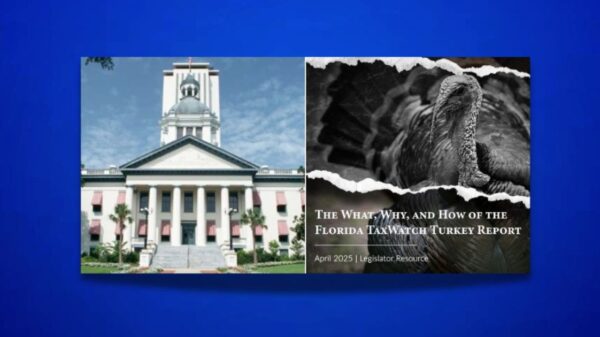On Thursday, Florida TaxWatch (FTW) released an economic commentary entitled “The Economic and Fiscal Significance of the U.S. Census and American Community Survey (ACS).”
The report underscores the COVID-19 pandemic’s impact on 2020 Census data collection efforts, including disruptions to the ACS, and highlights how this impacts federal funding and critical decision-making among policymakers and business leaders alike.
Florida TaxWatch President and CEO Dominic Calabro weighed in on the report.
“According to the U.S. Census Bureau, the 2020 Census undercounted the national population by 782,000 individuals, and preliminary estimates suggest nearly 207,000, or more than one-fourth, were Floridians. With our state’s population totaling over 21 million, this may not seem significant, but the unfortunate reality is that we’re missing out on at least an additional $14.6 billion in federal funding over the course of 10 years. For far too long, Florida has failed to receive its fair share of funds and support from federal funding programs, and Florida taxpayers deserve better,” Calabro said.
“What’s more, the data driving critical public and private sector decisions is at risk, implicating everything from supply chains and workforce planning to affordable housing and safety net programs. We can’t wait until 2030 and the next Census to improve our market intelligence and critical planning ability, so Florida TaxWatch is taking the lead in working with communities, businesses, and elected leaders to identify ways to improve the demographic and socioeconomic data garnered through the American Community Survey, which underpins federal funding for a variety of programs,” he added.
“Florida has been a donor state long enough. To ensure federal, state, and local spending are allocated in an accountable and effective manner, Florida TaxWatch will be focusing on efforts to provide for better counts and more accurate community, demographic, and market information,” Calabro said in conclusion.
FTW cited the Post-Enumeration Survey (PES) results released after the 2020 Census, which indicate that White and Asian populations experienced overcounts of 1.6 and 2.6 percent respectively, and the Black, Hispanic, American Indian/Alaskan Native categories experienced undercount rates ranging from 0.91 percent to 5.0 percent. Notably, children under the age of four were also undercounted by 2.79 percent, the largest undercount of this age group since 1970.
In Florida, self-response rates – which are highly correlated with higher net undercounts and omission rates – were reported at 63.8 percent, or 34th in the nation. Counties in central Florida and the Jacksonville area had some of the highest self-response rates, while areas in northwest Florida, the Big Bend, and southcentral Florida experienced relatively low self-response rates between 32 and 48 percent.
Across the nation, 316 federal spending programs depend on Census-derived data, including ACS results, to allocate $1.5 trillion to state and local governments, households, businesses, and nonprofits, in addition to supporting programs like Head Start, Supplemental Nutrition Assistance Program (SNAP), Pell grants, and more. Though FTW’s research has shown that Florida consistently receives fewer funds per capita than every other state – the result of historic undercounting – a 2017 study found that Census-guided federal spending totaled $86.8 billion in Florida, or 8.8 percent of the state’s total income that year.
While the fiscal impacts are significant, another concern is how missing information, important to public and private planners, is undermining the ability to properly plan for critical infrastructure and programs. The data and forecasts derived from the Census and ACS are essential for customer and market intelligence, workforce planning, infrastructure and community design, social programs, research, and local and state budgeting.
FTW is also launching a new Census Institute to build on its ongoing work to ensure Florida is accurately counted, fairly represented, and receives equitable levels of federal, state, and local funding following the next Census in 2030. More information about this effort and how to join will be made available soon.





















